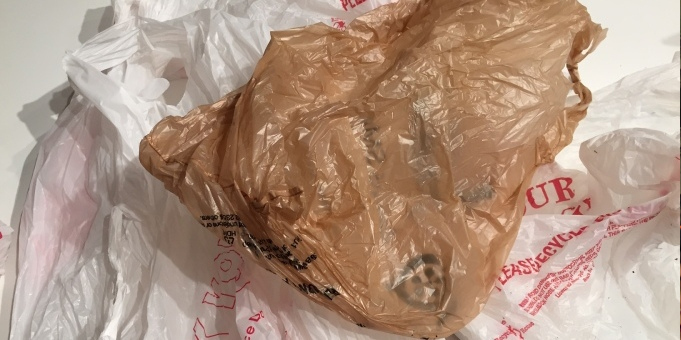We occasionally publish “classic” articles that we feel are still relevant to readers. On July 30, Newton began a ban of single use plastic bags in large sized stores. This article is from the Sep/Oct 2010 issue of the Green News.
Why am I focusing on a seemingly small thing like plastic bags? First, I think it’s relatively easy to fix compared to many of the daunting environmental challenges that we face. I also don’t believe we should be producing materials that don’t safely breakdown in the environment. And they are everywhere !
The plastic bag is an icon of convenience culture, probably the single most ubiquitous consumer item on Earth, numbering in the trillions. They are made from fossil fuels. Every year, Americans throw away some 100 billion plastic bags after they’ve been used to transport a prescription home from the drugstore or a gallon of milk from the grocery store. It’s equivalent to dumping nearly 12 million barrels of oil.
Only 1 percent of plastic bags are recycled worldwide — about 2 percent in the U.S. — and the rest, when discarded, can persist for decades, or even centuries. They’re so aerodynamic that even when they’re properly disposed of in a trash can they can still blow away and become litter. How many plastic bags have you seen up in a tree? They also clog storm drains, wash into rivers and bays and even end up in the ocean, washed out to sea. Newton’s curbside recycling program does not accept them. You have to return them to the store for recycling.
The California Assembly recently passed legislation prohibiting most stores from giving out plastic bags, and the bill would also charge customers for paper bags. It will be the first statewide plastic bag ban in the nation. The bill, AB 1998, still needs state Senate approval. Gov. Arnold Schwarzenegger praised the Assembly for passing the plastic bag ban, which he called “a great victory for our environment”.
We can no longer take the easy road road and pass on the costs of doing business onto the environment and future generations. The true costs of plastics have caught up with us.
(by Newton Alderwoman Alison Leary)


Recently on Twitter